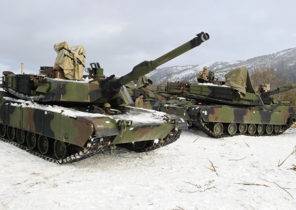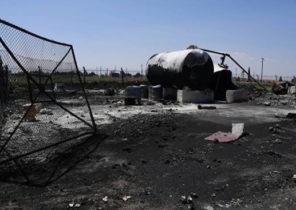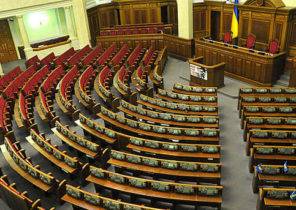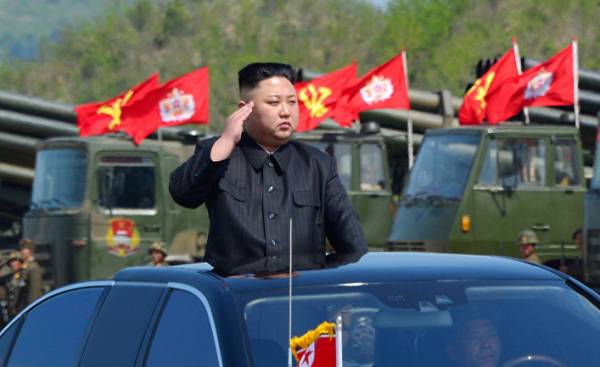
Briefing room at the state Department has traditionally been a place where the United States government to explain and promote its foreign policy around the world. For the six months as Secretary of state Rex Tillerson never came back — until Tuesday, when he appeared to send an ambiguous message to North Korea about its rapidly expanding programs to develop nuclear weapons and missiles.
First, he argued that the trump is not looking for regime change in North Korea. Instead, it strives to be “a productive dialogue”. His comments, is as unusual as his appearance, began a sharp retreat from the threats and harsh statements, which dominated the approach of President trump. For a short time thought possible to have a productive transition from “cool guy”, which requires China to rein in North Korea, to the more subtle, complex approach to a serious and growing nuclear threat.
But we must remember that this administration is trump, and it took very little time before doubtful was the belief that Tillerson spoke on behalf of the President or the national security team agreed on a common strategy that includes diplomatic solution. Wednesday, arrived in Washington from Europe, Vice-President Mike Pens rejected the idea of talks with the North Koreans, stating that “the direct involvement of North Korea” is not considered.
To solve problems in the field of security requires multi-level approaches, and there is nothing unusual in the fact that high-ranking officials emphasize different aspects of the strategy. But now the question is, is there really any strategy. Understaffed state senior officials in the security sector, who typically have experience, and assistance of officials with little management experience create more problems. This administration struggled trying to formulate a consistent policy toward North Korea. Not only ordinary Americans but also America’s allies, hardly understand where this administration. One can only assume that the North Koreans are isolated from much of the world, also confused, which significantly increases the risk of misunderstandings and miscalculations.
None of this can justify North Korea, whose stock of approximately 21 units of nuclear weapons and aggressive behavior, posing a growing threat. And though North Korea hinted at interest in negotiations with the United States (which it considers a threat, and it’s one of the reasons why the country is, first and foremost, seeks to build a nuclear Arsenal), it is unclear whether these serious statements. It could just be a trick to gain time, and North Korea can continue to develop an Intercontinental ballistic missile that could hit the United States.
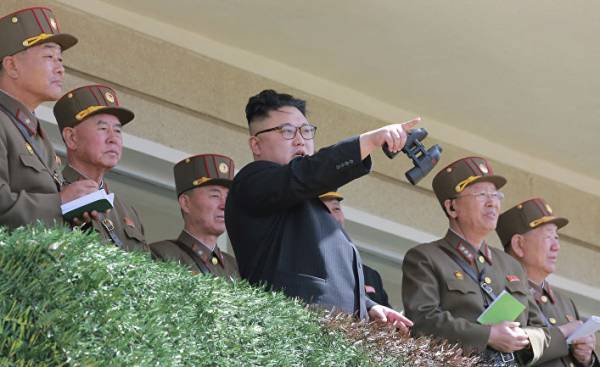 © AP Photo, Korean Central News Agency/Korea News Service via Archeologici leader Kim Jong-UN during drills
© AP Photo, Korean Central News Agency/Korea News Service via Archeologici leader Kim Jong-UN during drills
If there is a reliable way for a peaceful solution — but while there is reason to doubt that’s even possible at this stage, it cannot consist of empty threats, such as those expressed by Pens. It needs to include a subtle blend of pressure — for example, the threat of more severe sanctions — plus the willingness to appeal to fear North Korea, which fears that the United States and South Korea intend to destroy it.
So what is suggested Tillerson? He assured North Korea not only in the fact that the United States does not seek regime change, but also that they do not want an accelerated reunification of the Peninsula and not looking for “excuses to send our military to the North of the 38th parallel.” But, thereby, Tillerson was contrary to Mike Pompeo, the CIA Director, who has hinted that he wants the fall of the government of North Korea.
Tillerson, as the previous administration insisted that North Korea must abandon its nuclear weapons until the negotiations. But it is a hopeless endeavor, because no government will let go of his only bargaining chip. Administration officials privately said that this does not mean that the North Koreans need to hand over the weapon. As said one of the officials, they must “make good faith efforts to demonstrate its commitment to denuclearization” in the future, the steps that were explained to officials of North Korea through its mission at the UN in new York.
Right now it’s a dead end, created by years of broken promises and mistrust. Mixed messages from the administration trump only make the attempt to overcome it.
